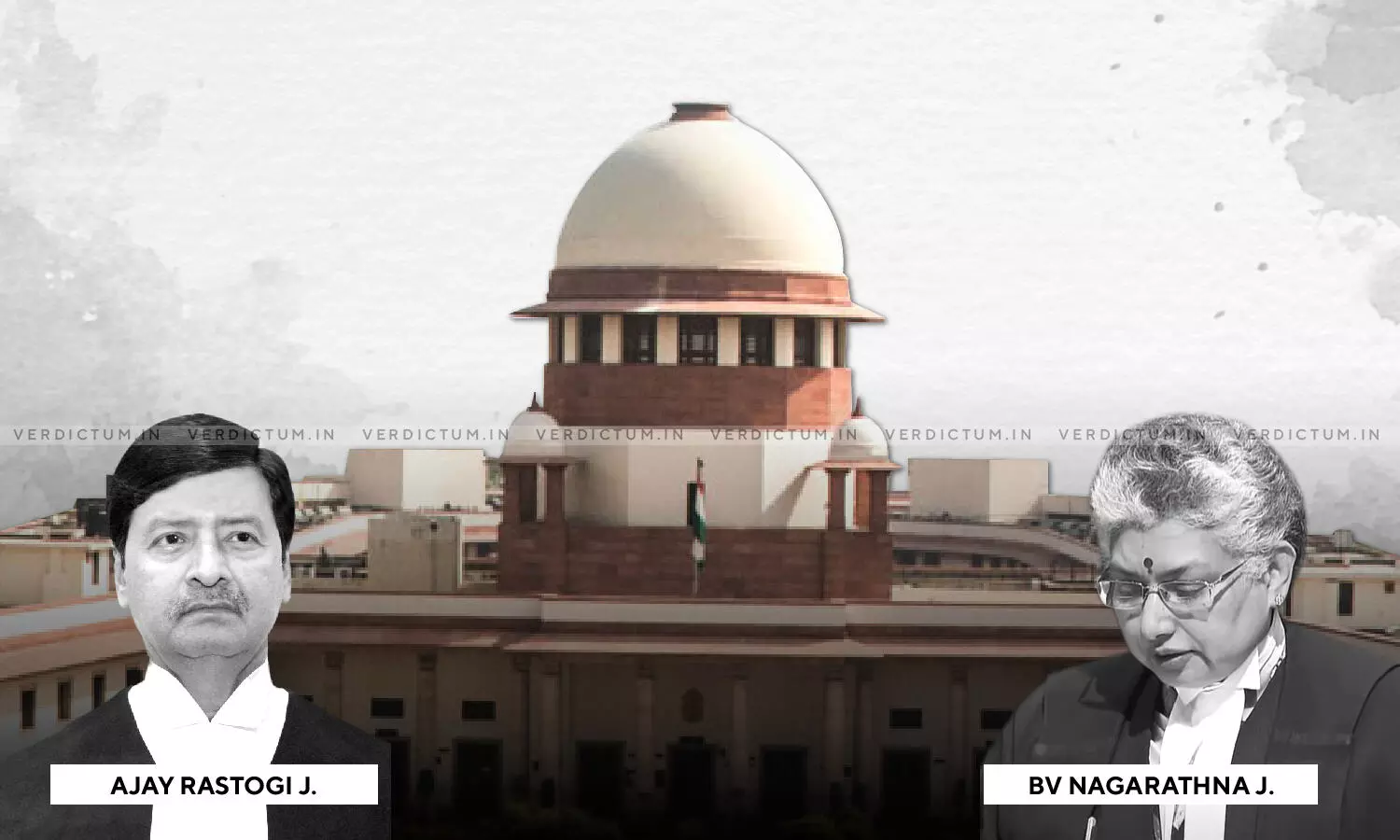
Material Discrepancies Corrode Credibility Of Prosecution's Case While Insignificant Discrepancies Don't: Observes SC In Murder Case
 |
|While adjudicating a murder case, the Supreme Court has observed that material discrepancies corrode the credibility of the prosecution's case while insignificant discrepancies do not do so.
A Bench of Justice Ajay Rastogi and Justice BV Nagarathna heard an appeal against a judgment confirming an order of conviction passed by the Gauhati High Court, by observing that "all the witnesses have given contradictory versions as to who gave the fatal blow to deceased Ekkabar Ali and the same amounts to material contradictions. It is reiterated that the testimony of PW-6 is inconsistent with the testimonies of PW-1, PW-2 and PW-5".
Setting aside the judgment and order, the Supreme Court held that "The material discrepancies corrode the credibility of the prosecution's case while insignificant discrepancies do not do so. Keeping in view the aforesaid principle this Court would hold that in the present case, there are material discrepancies in the testimonies of the witnesses and the same is fatal to the case of the prosecution. The prosecution has thus failed to prove the guilt of the accused-appellants beyond reasonable doubt."
Counsel Raj Kishor Choudhary appeared for the Appellants-accused, and Counsel Shuvodeep Roy appeared for the Respondent-State.
In this case, the prosecution alleged that an altercation had broken out between one of the witnesses and Accused No. 11. Subsequently, the other co-accused - armed with falla, jong, dagger, lathi, etc. - joined the altercation and attacked the other witnesses who had come to the place of occurrence. In this altercation, Accused No. 2 stabbed the deceased in the abdomen, and the deceased succumbed to his injuries shortly. The other witnesses also sustained injuriries. Some of the Accused were present at the place of occurrence with deadly weapons to ensure that no other person could come and prevent the commission of the alleged offences.
The Fast Track Court convicted all the Accused, i.e., Accused No. 1 to 11 and sentenced them for the commission of offences punishable under Section 302 read with Section 149, Section 148, Section 323 read with Section 148, Section 447 read with Section 149 and Section 324 read with Section 149 of the IPC.
The High Court upheld the order of conviction and punishment that had been passed by the Fast Track Court.
The Appellants-accused then approached the Supreme Court.
The Supreme Court perused the testimonies of all the witnesses in detail. On appreciation of the evidence, the Court found variations in the testimonies and observed that there was no consistency in the depositions of the witnesses as to who amongst the Accused gave a fatal blow to the deceased. Subsequently, the Supreme Court also said that the Fast Track Court as well as the High Court "ought not to have relied on the evidence of these witnesses which are highly inconsistent with each other in holding the concerned accused guilty."
Consequently, the Apex Court found that there was no clinching evidence to prove beyond reasonable doubt the case of the prosecution, especially since there were inherent contradictions in the evidence of the prosecution witnesses.
In a similar context, the Court held that since there were material discrepancies in the testimonies of the witnesses, the credibility of the prosecution's case was corroded.
Therefore, the Supreme Court held that "the High Court as well as the Trial Court have failed to take into consideration, the vital discrepancies and inconsistencies in the evidence of the prosecution witnesses and therefore the High Court was not justified in reaffirming the judgment and order of conviction passed by the Fast Track Court."
As a result, the appeals filed by the Appellants-accused were allowed, and the judgments passed by the High Court affirming the conviction and sentence by the Fast Track Court were quashed and set aside. The Appellants were acquitted of all the charges levelled against them.
Cause Title: Md. Jabbar Ali & Ors. v. The State of Assam